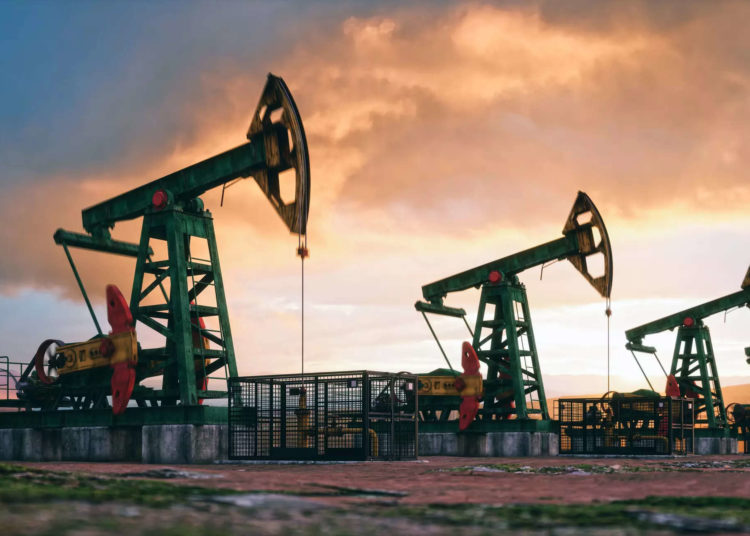The Independent Petroleum Producers Group (IPPG), has allayed concerns over the ongoing divestment of assets by International Oil Companies (IOCs).
The group also disclosed that its members have invested over $20 billion on acquisition and on capital expenditures in the 10 years to grow the divested assets.
Chairman of the IPPG, Mr Abdulrasaq Isa, who made this known while speaking at the 2022 Nigerian Oil and Gas (NOG) conference, yesterday, said that indigenous companies have the technical and financial capacity to take advantage of the opportunities presented by divestment of IOCs to up their stake in the oil and gas industry.
This is as secretary general of the Organisation of Petroleum Exporting Countries, (OPEC) Mr Muhammad Barkindo decried the persistent low investment in the global energy sector despite the need to ramp up as a much as $11.8 trillion by 2045 to develop the sector and ensure energy security.
Barkindo noted that the stringent energy transition policies adopted by industrialised nations and multilateral institutions as well as evolving geopolitical developments in Eastern Europe, the ongoing war in Ukraine, among others, continue to put the sector under siege and threatening its success.
While cumulative investments of $11.8 trillion would be needed between now and 2045 by Nigeria and other oil and gas producing countries to meet the growth in energy demand, these among other challenges are slowing the down the rate of investment thus creating imbalances in the global energy mix and causing supply gap disruptions, he said.
Continuing, the Independent Petroleum Producers Group chairman, Abdulrasaq Isa said members of the group have a proven track record of performance and remain best placed to guarantee a steady flow of investments in adding value to these divested assets.
“Some of our members have demonstrated an appetite for supporting the government’s energy security vision by building a broader value-adding midstream and downstream business.
“Overall, our members have deployed unique capabilities in operations which have minimised incidences of community disruptions and enhanced impactful community engagement models. IPPG strongly believes indigenous players have the
technical and financial capability to realise the Government’s aspirations for the sustainable growth of our industry.” added Isa.
According to him, in the last two decades, the number and contribution of indigenous players, largely due to Government’s initiatives and IOC divestments, has significantly increased.
Isa, said, the theme of this year’s conference – “Funding the Nigerian Energy Mix for Sustainable Economic Growth” underscores the importance of repositioning the industry in the face of the ongoing global energy transition laced with multifaceted global issues.He stated further that the enactment of the Nigerian Oil and Gas Industry Content Development Act (NOGICD Act) in 2010 has further supported the emergence of stronger indigenous oil & gas companies and complemented the government’s empowerment agenda.
“This trend must be further supported and sustainably nurtured. It is the sure way to achieve energy availability, affordability and security for all Nigerians” he said adding that the IOC divestments in 2010 ushered in a period of significant growth both for the Nigerian Petroleum industry and for the indigenous players in terms of overall contribution to the nation’s oil and gas production – translating to a net contribution from as low as 3 per cent in 2007 to about 16 per cent within a decade.
Isa, stated that the first phase of divestments demonstrated that indigenous E & P companies are capable of stepping up and performing at the highest level.
“I believe the current exercise will even be more successful considering the size of responsibility on the indigenous players and the determination to sustainable growth of the sector and the country,” he said.
He went further to assure that the onshore and shallow water assets being transferred in the course of these divestments by the IOCs are in safe hands with the indigenous Exploration & Production, E&P, companies.
Meanwhile, OPEC secretary general, Barkindo who also spoke at the NOG yesterday, said that though oil is expected to retain the largest share of the energy mix, accounting for 28 per cent share in 2045, followed by gas at around 24 per cent, current levels of investment remained a major limitation.
Barkindo stated that a number of industrialised countries and multilateral institutions have continued to pursue stringent policies aimed at accelerating the energy transition and fundamentally altering the energy mix.
the ongoing COVID19 pandemic and inflationary pressures across the globe have come together in a perfect storm that is causing significant volatility and uncertainty in the commodity markets, more importantly, in the world of energy.
The OPEC boss said the industry is still reeling from the enormous investment losses of recent years.
According to him, the industry has also been hit by two major cycles – the severe market downturn in 2015 and 2016, and the even more far-reaching impact of the COVID-19 pandemic.
Barkindo lamented that in OPEC’s 62-year history, spare capacity has never been as low as it is today, adding that this takes into account periods of war, natural disaster and other market shocks.
He told participants at the event that if this trend continues, it could haunt the sector in the future.
He added, “If our National Oil Companies are to continue to innovate and flourish, it is of utmost importance that they have predictable and unfettered access to investment capital.
“Regular investment at adequate levels is the lifeblood of ourindustry. It is essential if we are to develop new technologies, strengthen our human capacity and remain leaders in innovation so that we can do our part to meet the world’s growing need for energy, shrink our overall environmental footprint, and expand access to underserved communities.
“Yet our industry is now facing huge challenges along multiple fronts, and these threaten our investment potential now and in the longer term. To put it bluntly the oil and Gas industry is under siege.”
Barkindo told the gathering that OPEC projects that total primary energy demand will expand by a robust 28 per cent in the period to 2045.
The implication of this, according to him, is that oil and gas together will continue to supply more than half of the world’s energy needs for many decades.
He said, “In 2020, the first year of the pandemic and one of the darkest periods in the history of oil, upstream oil capital expenditure fell by around 30 per cent. This exceeded the colossal 26 per cent annual declines experienced during the severe industry downturn in 2015 and 2016.
“Looking further down the road, OPEC’s most recent World Oil Outlook give us some perspective on what is to come. It shows the global oil sector will need cumulative investments of $11.8trn in the upstream, midstream and downstream through to 2045 to meet expectations for significant growth in energy demand.
“With regard to demand, there is only one direction, and that is up. In fact, OPEC projects that total primary energy demand will expand by a robust 28 per cent in the period to 2045.
“Oil is expected to retain the largest share of the energy mix, accounting for just over a 28 per cent share in 2045, followed by gas at around 24 per cent. In other words, oil and gas together will continue to supply more than half of the world’s energy needs for many decades.
“These hydrocarbons are especially vital to the energy mix in regions like Africa, which will see massive population shifts and economic growth in the coming years. These developments increase the urgency of eradicating energy poverty.”





